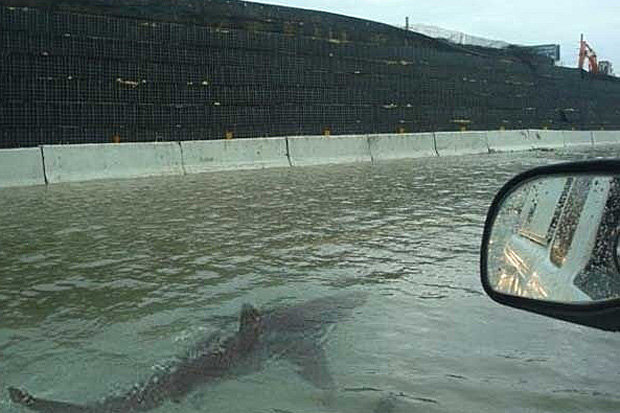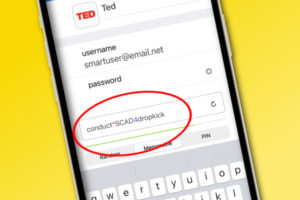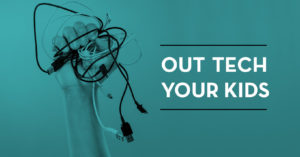Raising digital kids, we parents all want to raise them to be good digital citizens, make wise choices, never bully, never be bullied, use their platforms for good, and be the change we want to see in the world.
Not much to ask for, right?
Since starting this site (and raising our kids from tots to mobile teens), we have spent so much time thinking about this, talking to parents, listening to experts, learning from our own mistakes, and basically doing our best to raise responsible kids. In all aspects of life.
So many parents ask us for advice about this, and I know the task is daunting. Especially for those of us who grew up in the age where an app was something you ordered before dinner.
But what I’ve come to realize is all those talking points and lessons really boil down to four key points.
Not quite so daunting, right?
Here are the 4 messages that are truly all you need to tell your kids to help raise them into the kinds of digital citizens you can be proud of.
Top image: Annie Spratt via Unsplash
Related: How do I keep kids safe on social media? | Guide to Digital Parenting
1. Everything on the internet is forever.
We know that parents overall address specific issues with their children, like texting, harassment, or sharing bathing suit photos, but what’s important is for kids to understand is the macro issue:
Everything you do on the internet is preserved somewhere, somehow. Everything is forever.
Deleting a tweet doesn’t actually delete the tweet. Putting up a photo then pulling it down doesn’t mean it’s gone forever.
Admittedly, this kind of stinks. Because we’re all human, we all make mistakes, and kids are going to make them even more than we do. That’s how they grow. But in a digital age, they don’t get the anonymity and second chances that we did, before everything in life could be instantly captured, shared and preserved, with impact that isn’t always positive. But that’s the reality we’re living in, and kids need to understand this premise to help guide their decisions when they’re using phones and tablets.
2. Adults are here to help.
We place a lot of value on independence in this culture, and of course we want our kids to grow to make great decisions when we’re not around. But that happens in stages, which is why we like giving kids “training wheels” for the internet, using parental controls of various kinds, until they have developed better judgment and critical thinking skills about what apps to use, and how to best use them.
But even while we’re being smart as we can be when it comes to limiting inappropriate content or avoiding risky situations, I think it’s really, really important to let kids know that we are always here to help.
Whether they have a question about an app, whether they want to show us something they saw that makes them uncomfortable, whether they notice friends behaving in a way online that makes their needles jump — they can talk to us about it. And they should.
That’s what parenting is about. And that’s how we can help them navigate new experiences in the world of all kinds — and get to understand them better ourselves.
3. Just because it’s on the internet doesn’t make it true.
I know this cliché is as old as the internet itself. And no matter how many times I repeat it, my kids will still run to me with some crazy fact or shocking news and tell me “I saw it on Instagram/YouTube/my friend’s feed.”
One of the most important aspects of a good digital citizenry is truth-telling. We have major issues in the world right now in terms of “fake news,” the spread of false information, internet hoaxes, falsified research, and misinformation presented as news. We also face grave issues with spoofing, phishing, astroturfing and hacking.
Kids need to learn how to spot fake news and fake photos — and while this should be a requisite course in schools, in my opinion, it can certainly start at home.

No, there were no sharks swimming through the streets of Florida after Hurricane Matthew.
It’s all about looking at everything with a discerning eye, sourcing your information, and being willing to back up assertions with facts.
This doesn’t just pertain to news or rumors or Nigerian princes wiring you money, by the way; for younger kids, the lesson can be as simple as knowing that a four-star review of a toy they really want isn’t a guarantee that it’s a four-star product.
(Not that we’ll ever stop with the April Fools jokes, ha.)
Skeptical doesn’t have to mean cynical, and discerning doesn’t mean untrusting. If we can teach our kids to ask questions and think twice about information they pass along, they will be amazing adults! But it definitely takes some hand-holding and coaching from us.
Related: Does Gmail have parental controls? Well, here’s the deal.
4. Be kind.
This really is the all-encompassing tip that applies to everything in life — technology included.
Would you say it to someone’s face? No? Then don’t say it in a text, in a comment, or on a Snapchat video. No matter how anonymous you think you are or how popular a celebrity with a social media account may be.
We are a society that desperately needs more kindness, more compassion, more conversation. The anonymity of the Internet has provided the opportunity for so many people to seek help, find community and friendship, even meet spouses they would never have met otherwise. But the flip side of that can be just horrible.
I tell my kids that anonymity doesn’t give you permission to be cruel. That your need to be “right” or “tell it like it is” doesn’t take precedence over someone else’s feelings. That we can find better ways to disagree than to call someone names. And that yes, even celebrities with 6 million fans are real people who can be hurt by mean statements and bullies.
As R.J. Palacio wrote in their favorite book, Wonder, “if given the choice between being right and being kind, choose kind.”
I really couldn’t say it better than that.





